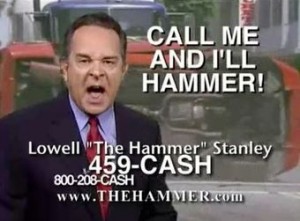I was reading an article that had questions you should ask yourself before you go solo. Questions like, are you self-disciplined, can you financially and emotionally handle not having a steady income, and do you like wearing many hats because in the beginning, you’ll be doing everything yourself.
If you are a sole practitioner, you may have asked yourself these types of questions before you took the plunge. If you’re thinking about going solo, you may be going through this process right now. But if you’re like a lot of attorneys today, you may not bother asking these types of questions, you’re going solo because you have no choice.
Maybe you’re fresh out of law school and you can’t find a job. Maybe you got laid off and know that the odds of replacing the job you just lost are very slim. Or maybe you just can’t stand what you’re doing and you need to be on your own.
Solo practice sounds exciting. No one to report to, make your own hours, do your own thing. In reality, sole practitioners put in longer hours and have far more pressure on them than their employed counterparts.
You have to bring in the clients and do all the work, and since most newly minted sole practitioners don’t have employees, you have to do all the ancillary chores as well. There are no benefits, paid vacations, or sick days. And when you’re the only one who shows up for work every day, it can get lonely.
A solo practice is actually a very poor business model.
And yet, many attorneys make it work.
I wasn’t one of those who was ideally suited to being a sole practitioner. I just knew I couldn’t work for anyone else.
I had worked for my father for a year out of law school and then opened my own office. I must have been crazy to do it. I had no clients, no money in the bank, and very little experience as an attorney. On top of that, I was 24 and looked 20.
From day one it was a constant struggle to survive and it was five years before I actually had anything resembling a successful practice.
I went solo because I had to. I survived because I had to.
If you’re thinking of going solo, do it because you have the experience, the clients, the financial staying power, and the temperament to run your own show. Or do it because you have no choice.
When you have no other options, you keep going. You figure it out. You do what you have to do.
One more thing. When everyone says you’re crazy for doing it, just keep thinking about how good it will feel when you prove them wrong.








